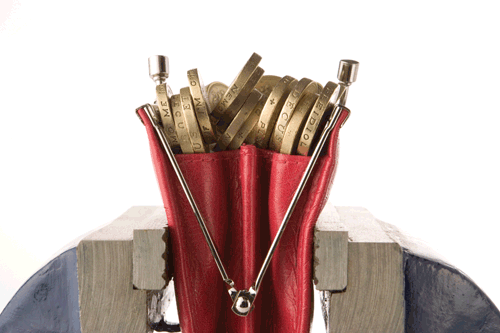Household Bills
Consumers rein in ‘big ticket’ spending as uncertainty grows

The latest Disposable Income Index (DII) reveals that many Brits are curbing spending on ‘big ticket’ items such as cars as economic anxieties reign.
The research, commissioned by ISA provider Scottish Friendly in combination with think-tank the Social Market Foundation, found that a third of households (33%) said they have delayed expensive purchases of cars, home improvements or TVs in the last 12 months.
Although most (79%) said they don’t have enough money to cover the cost, one in five (20%) cited uncertainty over prices as the main factor for postponing a purchase.
This seems to conflict with recent data from the Office for National Statistics, which showed relatively buoyant spending on ‘discretionary’ items. However, Calum Bennie, savings expert at Scottish Friendly, said that the key was the type of goods being bought.
He added; “The difference is between durable and non-durable goods. While people haven’t necessarily been cutting back on clothes or general items, they have been cutting back on big ticket areas – cars, home improvements, furniture. This is borne out by new car sales, which are falling.” The Society of Motor Manufacturers and Traders is forecasting a decline in new car registrations in 2017 and into 2018.
The report shows the median UK household has £1,078 left each month after paying for absolute essentials of housing, energy, water and a broader basket of goods including groceries, transport, childcare and broadband internet. Clothing, furniture, savings and holidays are all considered to be ‘extra’.
Inflation outpaced wage growth for the second quarter in a row, putting additional pressure on households’ disposable income. More than four in ten (42%) people said they are worse off than 12 months ago as the cost of living rises. Meanwhile, eight in ten (82%) households said their financial situation isn’t improving and just over a third (35%) believe they will be better off in 12 months’ time.
The index also revealed it is younger people who are most worried about their debt and their ability to cope with an unexpected bill. Over half (53%) of millennials (those born between 1981 and 1998) are anxious about debt, while 70% of those aged between 25-34 are concerned about their ability to cover a big unplanned expenditure. Overall nearly four in ten (38%) British households are anxious about the amount of money they owe.
Bennie said: “The country is anticipating the outcome of Brexit negotiations and the impact this will have on the wider UK economy. Employment levels are continuing to rise (75.1%). However, this is tempered by the reality that stagnation in wages coupled with creeping inflation is leaving many households needing to do more with less money in real terms. As a result, anxiety about finances and debt levels looks to be on the increase and sadly it’s younger people who are feeling the pinch more than most.”